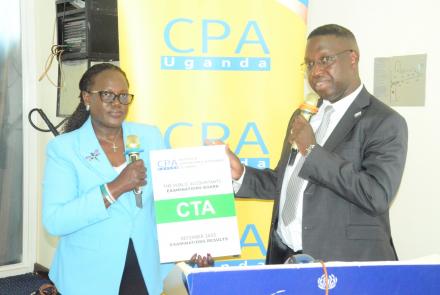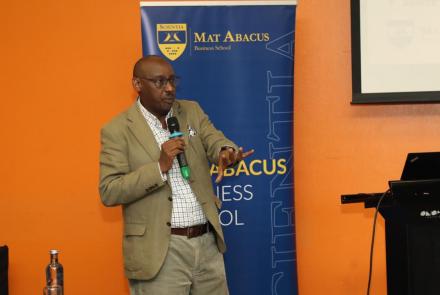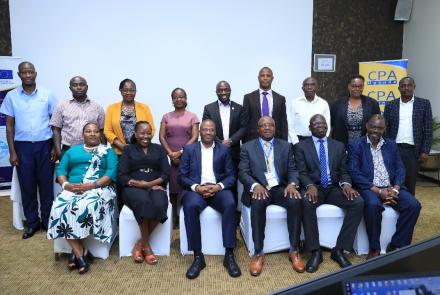By Jackline Nabirye
Communications Officer
ICPAU
Uganda is on the verge of a significant economic transformation but must intensify its efforts to achieve sustainable and inclusive growth. This was the central message delivered by Ramathan Ggoobi, Permanent Secretary and Secretary to the Treasury, as he delivered the keynote address at the 13th CPA Economic Forum.
The forum, held under the theme “Sustainable Economic Growth: Transforming Today, Thriving Tomorrow” aims to develop policy proposals for a thriving, equitable economy for the present and future generations.
Ggoobi revealed that Uganda has met the United Nations' criteria for graduating from the Least Developed Countries (LDC) category. However, he cautioned that meeting the criteria does not mean the country has officially graduated, and more work remains to be done. He described this progress as a fundamental achievement that signals Uganda’s readiness for the next phase of economic transformation.
Tracing Uganda’s growth journey, Ggoobi noted that the economy doubled its GDP between 2001 and 2010 but has since experienced slower growth, averaging around 5%. He expressed confidence that with deliberate policy shifts, Uganda could achieve much faster growth in the coming years. He identified adding value to agricultural products, rather than exporting them as raw materials, as one of the critical drivers of this growth.
Ggoobi highlighted sectors with enormous potential to power Uganda’s economic transformation. These include agro-industrial development, tourism, mineral value chains, oil and gas, and science, technology, and innovation. He emphasised that tourism alone, if well developed, could generate up to 50 billion dollars by 2040, far exceeding the current annual earnings of 1.5 billion dollars. He noted, however, that challenges such as poor infrastructure, inadequate sanitation, and limited marketing continue to constrain the sector.
He stressed the importance of addressing low productivity, especially in agriculture, where the average worker earns just $51 annually. Ggoobi challenged Ugandans to industrialise, upskill the workforce, and improve the productivity of key sectors. He emphasised the need for better urban planning and affordable housing, noting that while demand for housing is growing due to urbanisation, most urban households cannot afford decent homes.
Uganda’s mineral wealth ranging from gold, phosphate, and lithium, to iron ore and uranium also presents opportunities to build local value chains and attract global partnerships. Alongside this, investments in clean energy, such as the Standard Gauge Railway and electricity generation, are expected to support the country's industrial and export ambitions.
Ggoobi outlined several policy priorities for sustainable economic growth. These include enforcing laws and regulations, fostering teamwork and national consensus, skilling the population for market needs, and pursuing environmentally friendly development. He urged the policymakers to embrace clean production processes and integrate into regional and global value chains.
Looking ahead, Ggoobi said that Uganda has the potential to grow into a $500 billion economy by 2040, provided it capitalises on its strengths and addresses weaknesses in productivity, infrastructure, and governance. He urged Ugandans to work together, stay disciplined, and support policies that promote long-term prosperity.
The 13th CPA Economic Forum is running from 9 to 11 July, providing a platform for leaders and experts to shape policies that will drive Uganda’s economic transformation and improve the wellbeing of its people. The forum is being held at Imperial Resort Beach Hotel, and online.
The conference is including the Bank of Uganda, PKF, National Social Security Fund (NSSF), National Agricultural Research Organisation (NARO), Uganda Printing & Publishing Corporation, Electoral Commission, Uganda Electricity Generation Company Limited (UEGCL), Stanbic Bank, Centenary Bank, MTN Uganda and National Identification & Registration Authority (NIRA).
-END-




